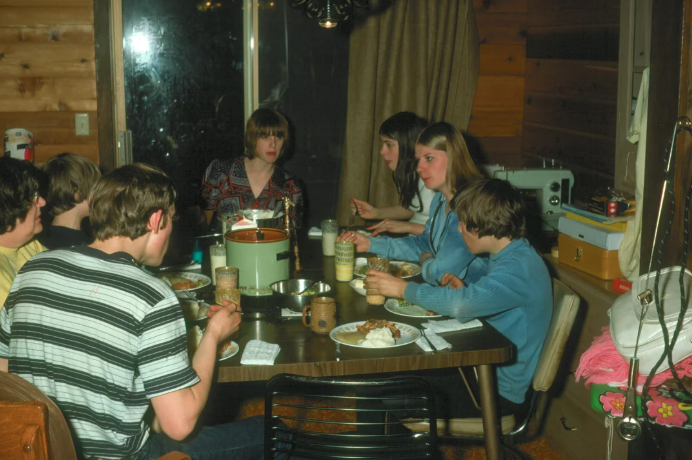Say you’re in line at the grocery store when the woman checking out in front of you pulls a SNAP benefits card out of an expensive-looking, name brand purse to pay for her groceries. Let’s say her nails are freshly manicured. Maybe she’s carrying an iPhone as well. Is your first thought something like:
Why is she receiving public assistance if she can afford that nice purse, nails, and phone?
Our brains are prone to making immediate, reflexive judgments about people we encounter. That’s just basic psychology, but it doesn’t mean we can’t consciously counter our snap judgments or reprogram our brains to make different ones. And when it comes to assumptions about people who are struggling financially, a whole lot of us could desperately use some reprogramming.
RELATED: What one man’s anger can teach us about the way we treat welfare recipients.
A viral Facebook post from last December is making the rounds again because it reminds us of a vital truth we all need to internalize.
Jenni Svoboda wrote:
Starting to see a lot of posts about people panhandling or using SNAP cards while dressed in decent/nice clothes again.
In the last month, I’ve donated 4 trash bags full of nice clothes—including miss me and silver jeans, VS fleeces, and a Columbia coat to People’s City Mission. I don’t say this to brag, I say this to remind you to mind your own business. You have zero idea where the stranger at the grocery store got their name brand clothes, and they don’t owe it to you to be dressed in rags so you know they’re worthy of getting some help to eat. If you’re warm, dry, and not starving, just be grateful.
Not only do people donate brand name clothing to shelters or clothing drives, but brand new, name brand clothing can often be had for a song at thrift stores or yard sales. Commenters on the Facebook post pointed out examples of how they had bought a new-with-tags Adidas jacket for $3 and a $60 pair of Converse for 50 cents. My own name brand purse cost $1.49 at our local thrift store, and it was barely used. Someone wearing or carrying something that looks expensive is in no way an indicator of someone’s financial status.
Maybe that woman at the store paid pennies for that purse. Maybe her roommate is a manicurist who does her nails for free. Maybe she got that phone before she fell on hard times.
Maybe it’s none of our flippin’ business.
“But they’re using my tax dollars to pay for their groceries, so it is my business!”
No, it’s not. First of all, the fraction of our tax dollars that goes to public assistance is pretty negligible. The average American tax payer shells out less than $7 a month for welfare assistance—is that really worth judging a perfect stranger over? And second of all, our tax dollars go to all kinds of things that other people use and we don’t. That’s the way taxes are designed to work.
If my city has to repair a street across town that I never drive on, I’m not going to start questioning whether the people who use it really need to drive on it that frequently. “They’re using my tax dollars to repair that road, so it is totally my business to determine whether the people are driving on that road more than they really need to.” That sounds silly, doesn’t it?
RELATED: This mom left an abusive relationship and fell into poverty. Here’s how she got out.
People also tend to get judgy about what people buy with food stamps, as if people receiving assistance are obligated to have a far more perfect diet than the rest of us. When that judgment comes, we need to ask ourselves why someone struggling financially doesn’t deserve a donut once in a while.
The bottom line is it’s not okay to police people using public assistance. It’s not okay to decide that a person has to meet some visual standard of poverty in order to need or deserve help. It’s not okay to assume anything about a person’s financial situation based on what they’re wearing, what they’re carrying, or how put together they look. It’s not okay to judge what a person has in their grocery cart or how they are paying for it.
When you think about it, we don’t know where anyone’s money comes from. The well-off woman paying for her kombucha and organic spinach may have made her money scamming the elderly. That dude paying for his groceries with cash might be selling drugs on the side. And that mom with the SNAP card buying cake and soda might have a kid celebrating a birthday and those treats are the only ones they’re going to get for a while.
But which of those people would we tend to judge first?
We all have the choice, during the seconds of a random encounter, to assume the best or assume the worst in people. When you don’t know what you’re looking at, give people the benefit of the doubt. If our brains are going to make snap judgments anyway, let’s reprogram them to come from a place of kindness and compassion.





































